Two axiomatizations of the pairwise netting proportional rule in financial networks
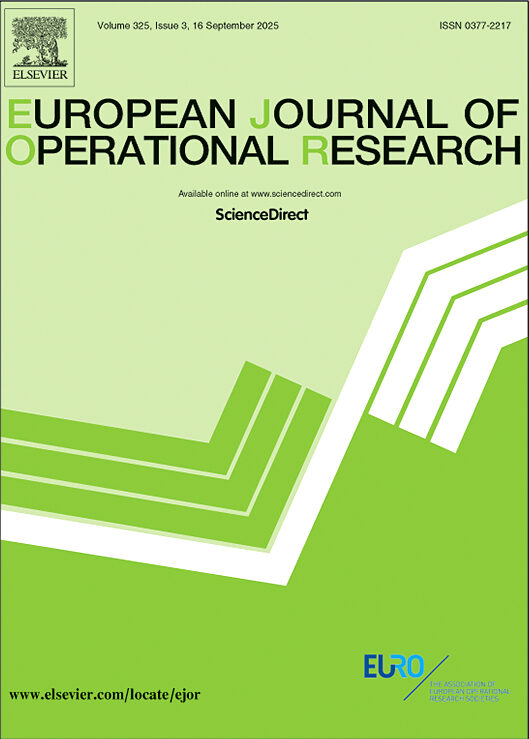
Péter Csóka – P. Jean-Jacques Herings European Journal of Operational Research, Vol. 325. No. 3. pp. 553-567. (2025) Abstract We consider financial networks where agents are linked to each other via mutual liabilities. In case of bankruptcy, one needs to distribute the assets of bankrupt agents over the other agents. One common approach is to first […]
Wine, markups, and export behavior: Evidence from Hungary
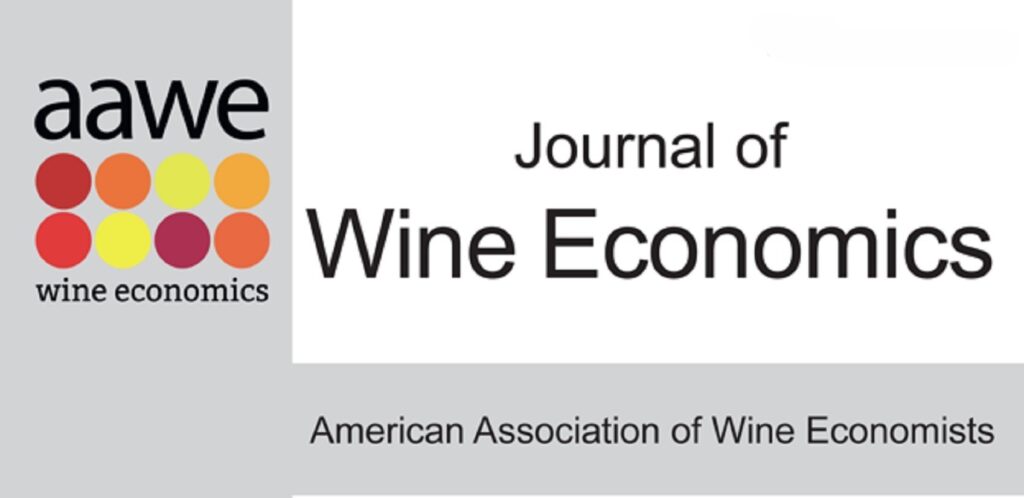
Gergely Csurilla – Zoltán Bakucs – Imre Fertő Journal of Wine Research, First View , pp. 1-13 (2025) Abstract The study examines the influence of markups on the export decisions and subsequent export intensity of firms within the Hungarian wine sector. Additionally, we evaluate the impact of entering and sustaining a presence in export markets on firms’ markups […]
Gender-based differences in eco-efficient farming

Imre Fertő – Lajos Baráth – Štefan Bojnec Scientific Reports, Vol. 15. Art. No. 15895 (2025) Abstract This study investigates gender-based differences in eco-efficiency among Hungarian field crop farms, using data from the Farm Accountancy Data Network between 2015 and 2020. Applying Data Envelopment Analysis and Blinder-Oaxaca decompositions, we reveal a consistent eco-efficiency advantage for women-headed […]
Az üzleti kutatások társadalmi hatásáról
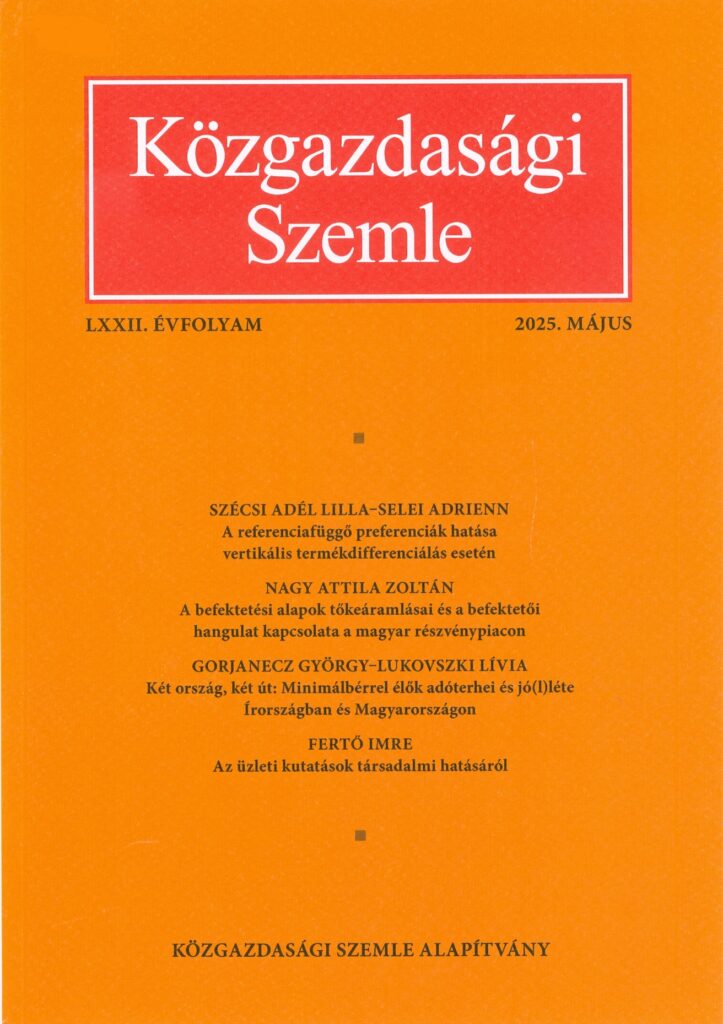
Fertő Imre Közgazdasági Szemle, 72. évf. 5. sz. pp. 516-533. (2025) Az üzleti kutatások társadalmi hatása mindeddig csak korlátozottan érvényesült, amiben a gazdasági és intézményi keretek ellentmondásai éppúgy közrejátszanak, mint a kutatói közösség belső akadályai. A piaci mechanizmusok a rövid távú profitot helyezik előtérbe, miközben a tudományos műhelyek az elméleti igényesség magas szintjére törekszenek; e […]
The effect of regulatory requirements on market liquidity: ESG promotion as a special case
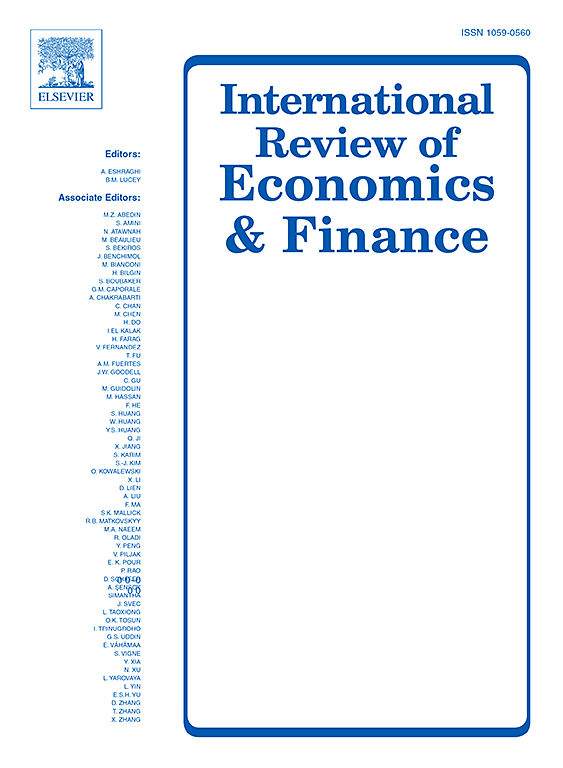
Judit Hevér – Péter Csóka International Review of Economics & Finance, Vol. 100. Art. No. 104078 (2025) Abstract Liquidity is a key consideration in financial markets, especially in times of financial crises. For this reason, regulatory attention to and measures in this field have been on the rise for the past several years. As a matter […]
A magyar feldolgozóipar technikai hatékonysági vizsgálata
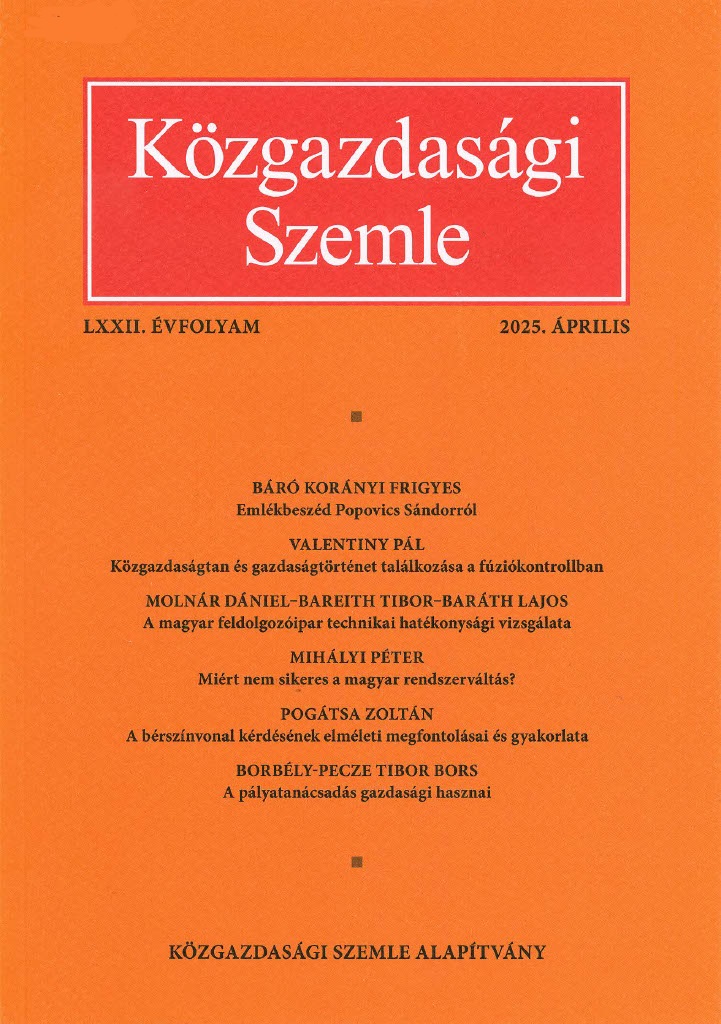
Molnár Dániel – Bareith Tibor – Baráth Lajos Közgazdasági Szemle, 72. évf. 4. sz. pp. 369-387. (2025) Tanulmányunk célja a magyar feldolgozóipar technikai hatékonyságának vizsgálata a 2013–2022 közötti időszakban, olyan sztochasztikushatár-modellekkel (Stochastic Frontier Analysis, SFA), amelyek lehetővé teszik a vállalatok közötti nem megfigyelt heterogenitás kezelését. Emellett az output növekedését felbontottuk az input- és a […]
Socioeconomic inequalities and diabetes complications: an analysis of administrative data from Hungary
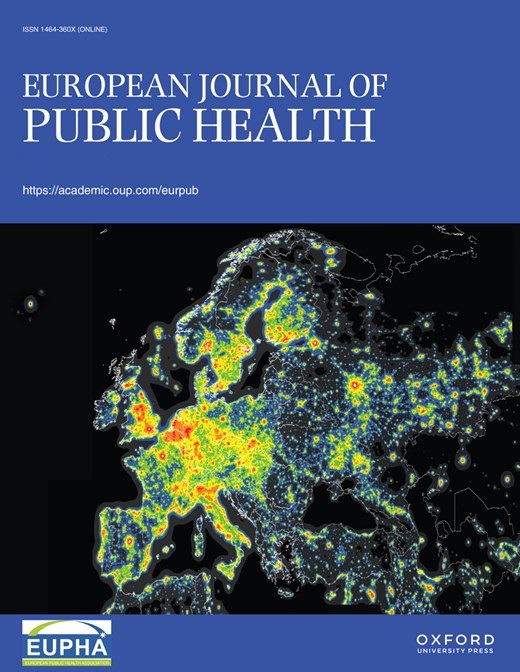
Péter Elek – Balázs Mayer – Orsolya Varga European Journal of Public Health In Press, Published: 08 April 2025 Abstract Diabetes complications are associated with increased healthcare costs and worsened patient outcomes. In this paper, we analyse how individual-level demographic and territorial-level socioeconomic and healthcare variables influence the presence and severity of diabetes complications and […]
The Community-Driven Ecosystem Resilience and Equity Framework: A Novel Approach for Social Resilience in Ecosystem Services
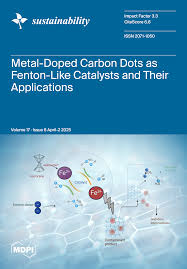
Masoomeh Shemshad – Agnieszka Synowiec – Marcin Kopyra – Zsófia Benedek Sustainability, Vol. 17. No. 8. Paper: 3452 (2025) Abstract Ecosystem service (ES) frameworks help to assess the benefits ecosystems provide to society, yet weak governance integration often limits their effectiveness. This review critically examines major ES frameworks’ governance gaps, introduces the Community-Driven Ecosystem Resilience […]
Anyasági keresetkülönbözet Magyarországon
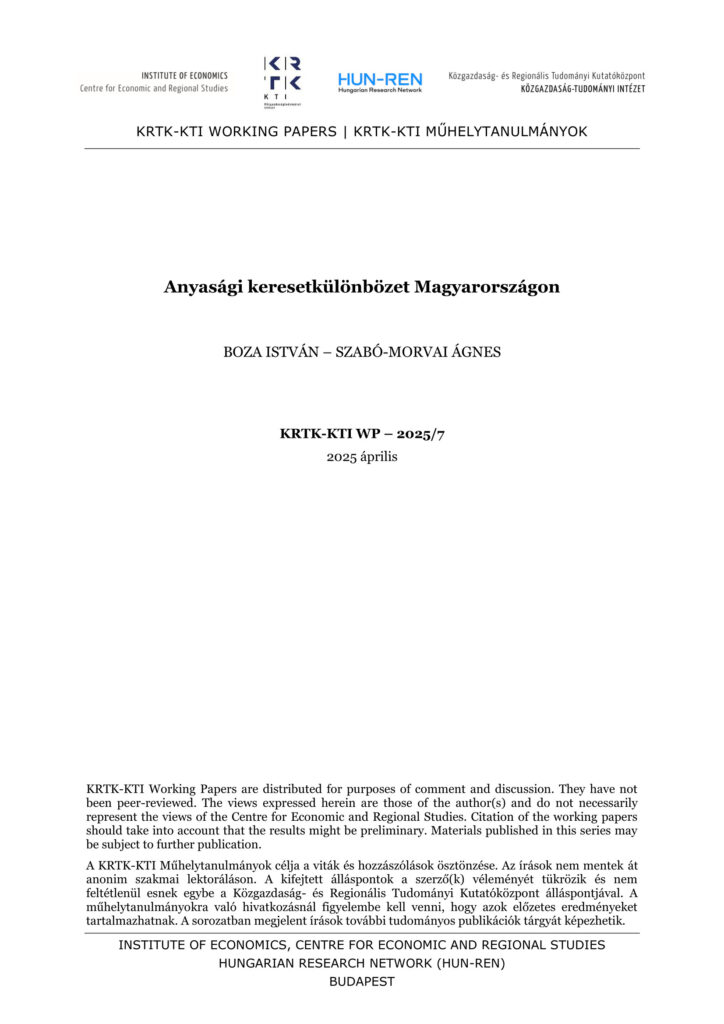
Tanulmányunkban a gyermekvállalás hatását vizsgáljuk a nők munkaerőpiaci kimeneteire, különös tekintettel a foglalkoztatottságukra és munkajövedelmekre. Elemzésünkhöz adminisztratív paneladatokat és oksági hatásokat becslő eseményelemzési módszereket alkalmazunk, az anyák mellett kontrollcsoportként gyermektelen nőket is bevonva az elemzésbe. Eredményeink alapján a szülést követően az anyák foglalkoztatási rátája és bére jelentősen visszaesik. A szülés után hat évvel a munkajövedelmük […]
Beyond the Degree: Fertility Outcomes of ‘First in Family’ Graduates
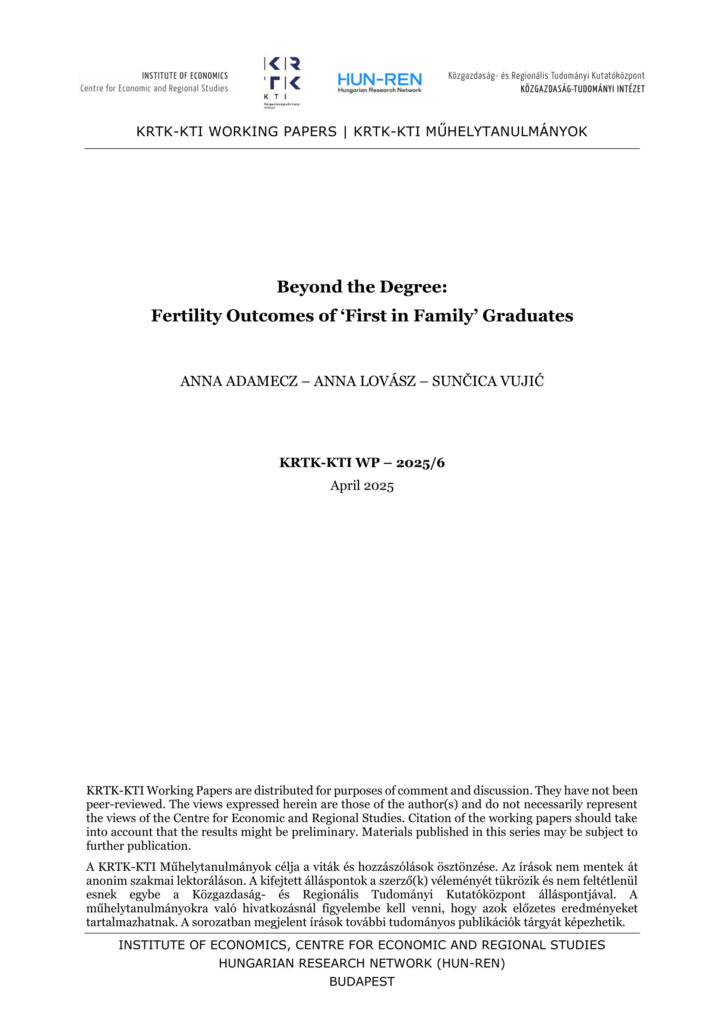
This paper examines the link between higher education and fertility, with particular attention to the role of intergenerational educational mobility in shaping this relationship. Drawing on data from the 1970 British Cohort Study, we estimate differences in completed fertility across three groups: first-in-family university graduates (FiF), graduates with at least one university-educated parent (non-FiF graduates), […]
Látlelet a magyarországi bevásárlóközösségekről
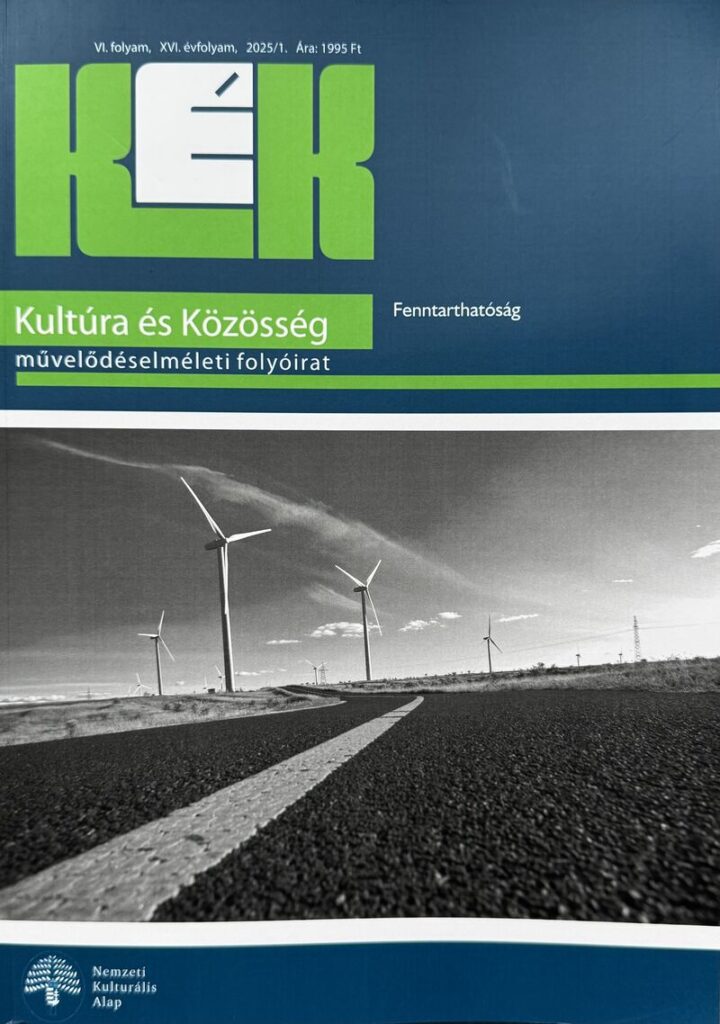
Benedek Zsófia Kultúra és Közösség, 16. évf. 1. sz. pp. 55-60. (2025) Absztrakt: A tanulmány bemutatja a magyarországi bevásárlóközösségek működését, fejlődését, valamint szerepét a helyi élelmiszerrendszerek fenntartható átalakításában. A bevásárlóközösségek olyan fogyasztóközpontú, alulról jövő kezdeményezések, amelyek közvetlenül kötik össze a helyi élelmiszertermelőket a fogyasztókkal. Ezek a közösségek elősegítik a friss, helyi termékek elérését, miközben […]
Maximum-utility Popular Matchings with Bounded Instability
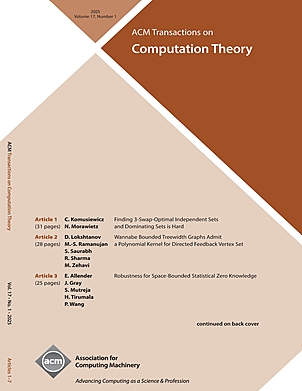
Ildikó Schlotter – Ágnes Cseh ACM Transactions on Computation Theory, Vol. 17. No. 1. Art. No. 6. (2025) Abstract In a graph where vertices have preferences over their neighbors, a matching is called popular if it does not lose a head-to-head election against any other matching when the vertices vote between the matchings. Popular matchings […]





